PhD Candidates
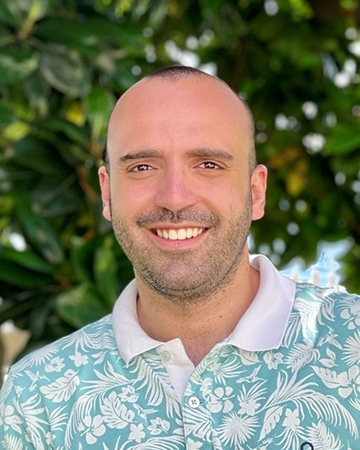
Farzad Elhami
Farzad was born in Mashhad, Iran. He has a B.Sc. in Mechanical Engineering from Ferdowsi University of Mashhad. He also obtained his M.Sc. in Biomedical Engineering from Politecnico di Milano in Italy in 2021. For his master’s thesis, he joined HERLAND LAB in KTH Royal Institute of Technology in Stockholm, Sweden to become involved in a one-year research project under the supervision of Professor Anna Herland and Dr. Thomas Winkler. His master’s thesis involved chip design and fabrication for modeling the blood-brain barrier (BBB), with a particular focus on the use of novel hydrogels to improve the biological functionality of this tissue. In 2022, he embarked on his PhD and joined DC MatureTissue Program to continue his studies and accomplish PhD Topic #2 under the supervision of Dr. Andreas Teuschl-Woller, Dr. Peter Ertl, and Dr. Mario Rothbauer.
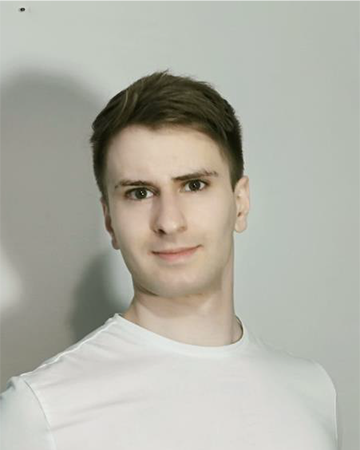
Elias Ellersdorfer
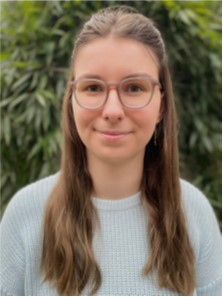
Lisa-Marie Gaul
Lisa Marie-Gaul started her bachelor´s degree in 2016 and finshed as a bachelor of human and molecular biology at Saarland University, Germany. Driven by her interest in research she continued with a masters degree in the field of biotechnology in a double-degree programm of the IMC Krems and Linköping University. She finished her studies in February 2023 with her final exam on her master thesis with the title: „Investigating the role of the tumor microenvironment in pancreatic cancer using an organ on-a-chip platform“ supervised by Marle Geyer and Karla Queiroz at the company MMETAS B.V. in the Netherlands. Currently, Lisa is part of the Mature Tissue Doctoral College at the TU Wien in the research group of Prof. Ovsianikov. She is supervised by Mina Petrovic, Prof. Ovsianikov and FH-Prof. Priv. Doz. Andreas Teuschl-Woller.
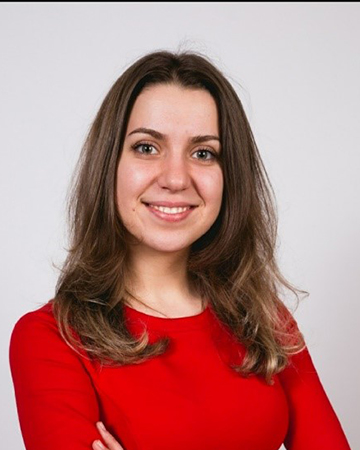
Ekaterina Oleinik
Ekaterina is a PhD student in Experimental Biomechanics as part of the Mature Tissue Doctoral College. She received a Master’s degree from the Institute of Biomedical Systems and Biotechnology (Peter the Great St. Petersburg Polytechnic University). Her Master’s project was devoted to studying the non – apoptotic role of p53, particularly the interaction between p53, c – Abl, and ERK1/2 in the pathogenesis of neurodegenerative diseases in in vitro models with an intention to model Alzheimer’s disease pathology. Currently, her research focuses on the micromechanics of tendons and their modifications under inflammatory conditions.
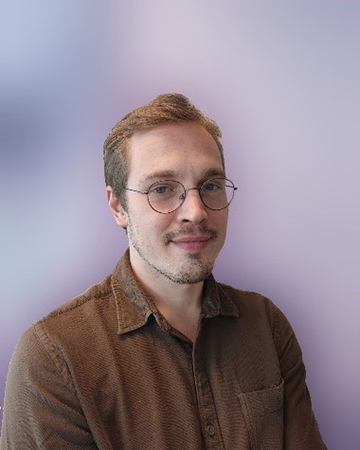
Roland Rose
Roland Rose received his MSc. in Tissue Engineering and Regenerative Medicine from the University of Applied Sciences Technikum Wien. In 2020, he wrote his master’s thesis on the physical characterization of therapeutically applied shock waves at the Ludwig Boltzmann Institute for Experimental and Clinical Traumatology in Vienna under the supervision of Cyrill Slezak. Afterwards, he spent one year at the Ludwig Maximilian University in Munich. At the Chair of Biophysics, Roland Rose worked in the group of Friedhelm Serwane on the production of an automated cultivation platform for retinal organoids. Since April, Roland Rose is working on a co-culture system of artificial muscle-like constructs. The aim of t he project is the establishment of strategies that allow for a vascularized and in nervated tissue construct mimicking functionality and composition of skeletal muscle. The role extracellular matrix plays in facilitating these aspects of “mature tissue” is one of Roland Rose ’s main research interests.
